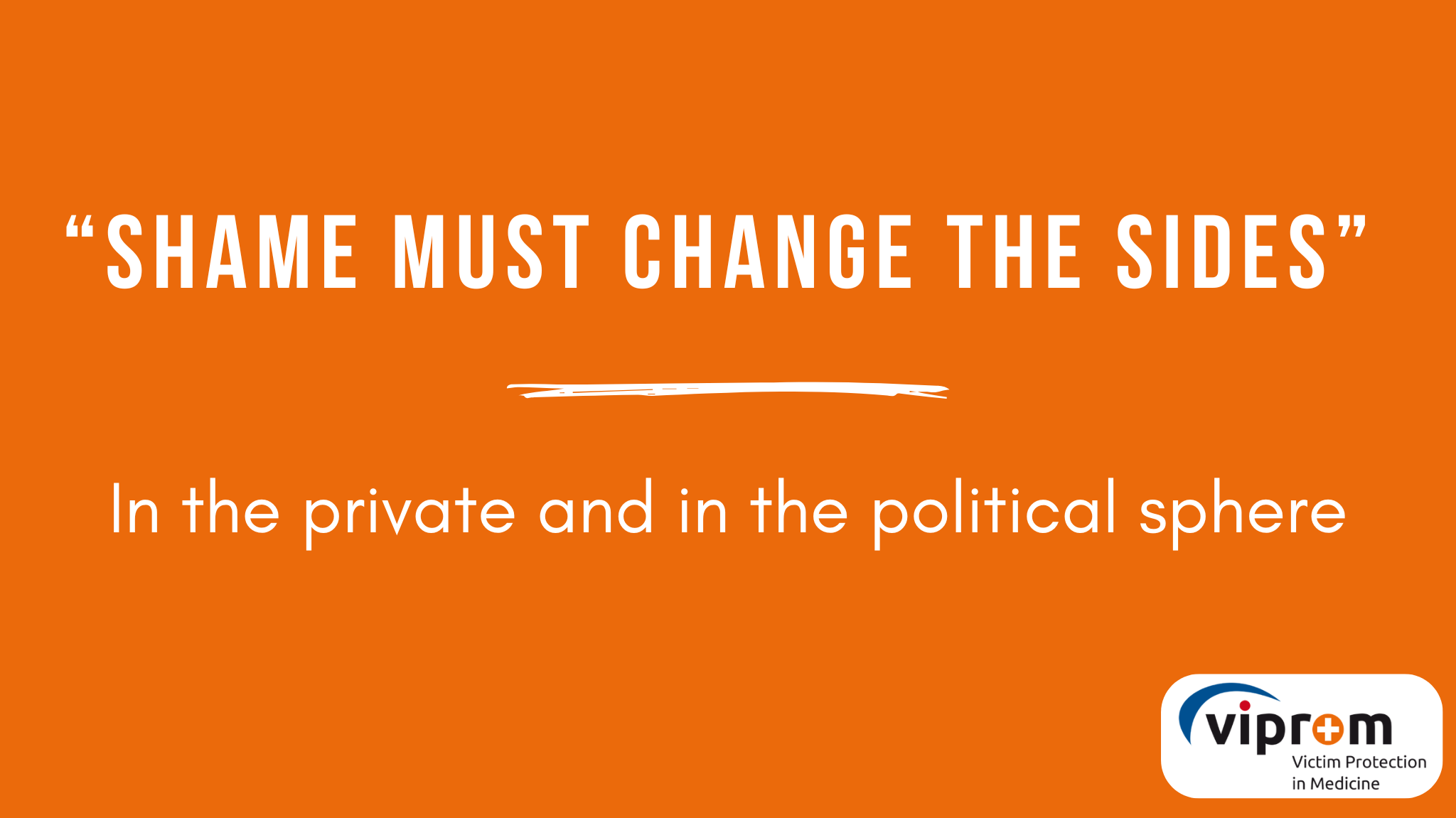
France: The husband of Giséle Pelicot drugged and enlisted dozens of strangers to rape her.
Poland: Man accused of holding a woman captive in Poland for over 5 years, abusing her sexually and physically.
Germany: Man sets two houses on fire to take revenge on his ex-wife’s family, harms more than 30 people.
These are just three examples of massive violence against women that have received media attention just in September 2024. The actual figures for domestic violence are overwhelming: in Germany alone, there was an increase of 6.5 percent last year compared to 2022 (Police Report on DV in Germany, 2023). Only recently, on November 19, new figures were published: in 2023, 938 attempted femicides and 360 completed femicides were recorded by the police (Federal Criminal Police Office Germany, 2024).
And the number of unreported cases? The dark figure is many times higher.
“Downplaying and imprecise terms such as “tragedy” or “drama”, rather than the use of “separation homicide” or “femicide”, suggest the sudden and unpredictable occurrence of violence and obscure the structural vulnerability of women to violence.” (bpb, freely translated)

Credit: UN Women Deutschland
This problem is also frequently addressed by organisations such as “Bundesfachverband Frauen gegen Gewalt e.V.”, a German umbrella organisation against DV. They developed guidelines on how to address this topic in the media, and emphasise: “Appropriate, gender-equitable and discrimination-sensitive language is important. Differentiated terminology and informative reporting are effective in combating clichés and prejudices.” (BFF, freely translated).
However, media coverage can have an indirect effect on reporting behaviour: the clearer it is made that violence against women is not a private matter and social taboos are dismantled, the more likely it is that the responsibility for solving the problem will fall to politicians (bpb). To tackle the influence of stereotypes and biases when it comes to disclosing and addressing victims of DV appropriately, the VIPROM partners include reflexion tasks in their trainings.
To achieve this, another key aspect must change: How the media report on violence against women shapes the perception of the readers when it comes to DV. Why do we ask the victims why they stay and not the perpetrators why they beat the victims? There is no victim without perpetration. In this regard, an interesting development can be observed at the moment: Not only did Gisele Pelicot choose to step out of anonymity and called for a public trial, she is also challenging the narrative that has been in place for decades by saying “The shame must change sides”.

© Flickr
“Both the visibility of violence against women and the way it is reported can therefore influence society’s understanding of the problem.” (bpb, freely translated)
WHY DO WE NEED ACTIONS AROUND THE INTERNATIONAL DAY FOR THE ELIMINATION OF VIOLENCE AGAINST WOMEN?
These activities raise awareness about the often-hidden violence against women and children.
- This year, for example, UN Women Germany is addressing the rising number of femicides and drawing attention to the fact that a woman is killed by her (ex-) partner every two days with the #EveryTwoDays Several local and national organisations are taking part in this campaign and organise events like podium discussions, theatres, cinema shows, art exhibition and more to raise awareness for this important topic.
- It provides unique opportunities to highlight important activities such as the EU project VIPROM.
- In the end, they help holding perpetrators accountable and we must succeed in providing victims with good, trauma-informed support.
MORE INFORMATION ON DOMESTIC VIOLENCE
If you are interested to learn more about domestic violence in the health sector, please visit our European training platform on domestic violence.
REFERENCES
If you are interested to learn more about domestic violence in the health sector, please
- https://www.dw.com/en/france-gisele-pelicot-urges-social-change-at-rape-trial/a-70580738
- https://www.cbsnews.com/news/woman-captive-abused-5-years-poland-special-cruelty/
- https://www.stuttgarter-nachrichten.de/inhalt.haeusliche-gewalt-essener-gewaltfall-nur-die-spitze-des-eisbergs.1dacbcac-134b-4287-b834-fe4baf5d063f.html
- https://www.bpb.de/themen/gender-diversitaet/femizide-und-gewalt-gegen-frauen/515609/die-darstellung-von-gewalt-gegen-frauen-in-den-medien/
- Meltzer, C. E. (2021). Tragische Einzelfälle? Wie Medien über Gewalt gegen Frauen berichten (Nr. 47; OBS-Arbeitspapier). Otto Brenner Stiftung. https://www.otto-brenner-stiftung.de/wissenschaftsportal/informationsseiten-zu-studien-2021/tragische-einzelfaelle/
- https://unwomen.de/orange-the-world/
- https://www.frauenrat.de/prominente-appellieren-an-den-kanzler-stoppen-sie-gewalt-gegen-frauen-jetzt/
- https://eige.europa.eu/gender-equality-index/2023/domain/violence
- https://www.rnd.de/panorama/polen-mann-foltert-und-vergewaltigt-30-jaehrige-jahrelang-in-schweinestall-2QYKST4COFKU7HVNBSEF4N63OE.html
- https://www.bka.de/DE/AktuelleInformationen/StatistikenLagebilder/Lagebilder/HaeuslicheGewalt/haeuslicheGewalt_node.html
ABOUT THE AUTHOR

Olga Damsen, M.A., works as research associate in the EU project VIPROM – Victim Protection in Medicine at GESINE Intervention (Center for prevention, information, protection and support in cases of gender-based violence against women). She holds a Master’s degree in Empowerment Studies with emphasis on Human Rights Policy from the University of Applied Sciences in Düsseldorf. Previously, she has been working in field of psychosocial counselling with refugees and trauma stabilisation of survivors of domestic and sexual violence for more than ten years.
 This project has received co-funding from the European Union’s CERV-2022-DAPHNE programme under grant agreement No. 101095828.
This project has received co-funding from the European Union’s CERV-2022-DAPHNE programme under grant agreement No. 101095828.
Newsletter
Please subscribe here for the VIPROM newsletter:
